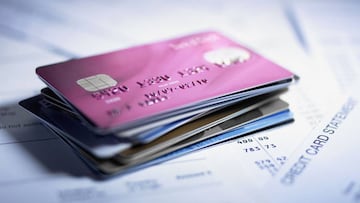How to know if you are a victim of identity theft and what to do about it
Identity theft is a widespread problem, and the number of incidents is growing. Here’s how to know if you have been a victim and what you can do about it.

Identity theft has been around for decades, and the problem is not going away any time soon. According to the Federal Trade Commission, the number of reports of identity theft in the first half of this year has already matched that of the whole of 2019.
Being a victim of this crime can cause big financial losses and create other problems related to credit or bank accounts. Determining that you have been a victim of identity theft is crucial for taking swift action to minimize the damage and prevent further harm to your personal and financial information.
Here are some signs that could indicate that you have been a victim of identity theft.
Unauthorized transactions
Review your bank and credit card statements regularly. If you notice unfamiliar or unauthorized charges from retailers, for services, or even for medical bills, it could be an instance of identity theft.
Credit report changes
Check your credit reports for any unexplained changes, such as new accounts you didn’t open, loans you did not apply for, or significant drops in your credit score.
Missing mail
If you stop receiving bills, statements, or other mail that you typically get, someone may have changed your mailing address without your knowledge.
READ ALSO: Requirements to rent an apartment in Florida
Rejection of credit or loans
If you are denied credit or loans for no apparent reason or are offered unfavorable terms, identity theft might be a factor.
Unfamiliar accounts or services
Be cautious if you receive notifications about new accounts, services, or insurance policies that you didn’t request.
Social Security number misuse
If you notice discrepancies in your Social Security benefits or you are told you’re receiving benefits for which you didn’t apply, it could be a sign of identity theft.
What to do if you suspect identity theft
Contact the credit bureaus
Place a fraud alert on your credit reports with the three major credit bureaus (Equifax, Experian, and TransUnion). This alert will make it more challenging for identity thieves to open new accounts in your name.
Review your credit reports
Obtain free copies of your credit reports and carefully review them for inaccuracies or unfamiliar accounts. Dispute any unauthorized or incorrect information.
Report to law enforcement
File a report with your local police department or the police department where the theft occurred. Get a copy of the report, as it may be required when dealing with creditors.
Contact financial institutions
Notify your banks and credit card companies about the identity theft. They can help you secure your accounts and investigate any fraudulent transactions.
READ ALSO: Frivolous asylum applications harm immigrants
Report to the Federal Trade Commission
File a complaint with the FTC at IdentityTheft.gov or by calling 1-877-ID-THEFT (1-877-438-4338). This creates an identity theft report and a recovery plan.
Update passwords and PINs
Change your login credentials for all your online accounts and use strong, unique passwords for each account.
Monitor your accounts
Continue to monitor your financial accounts and credit reports for any suspicious activity.
Keep records
Maintain detailed records of all communications and actions taken to resolve the identity theft, including dates, names, and reference numbers.






